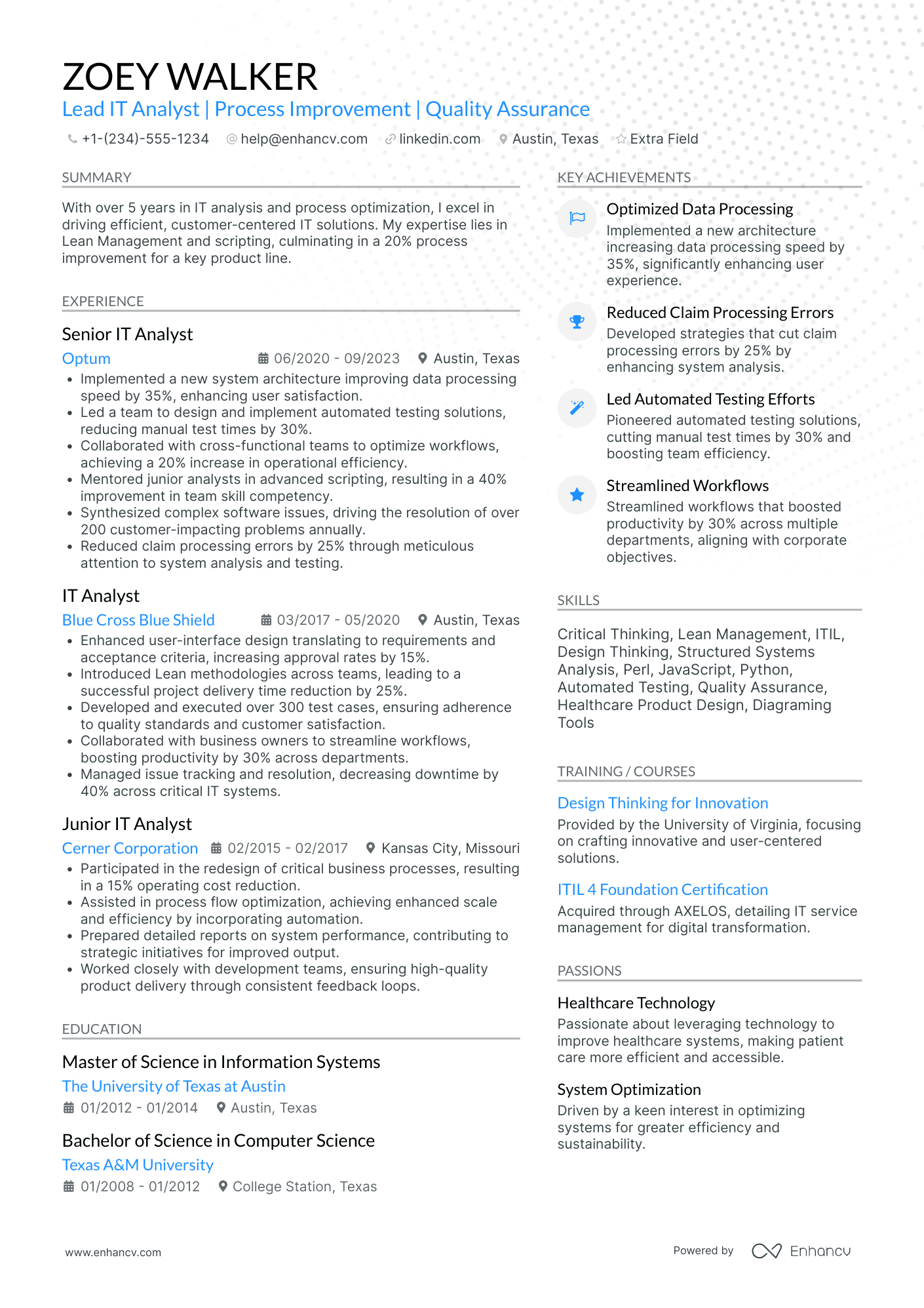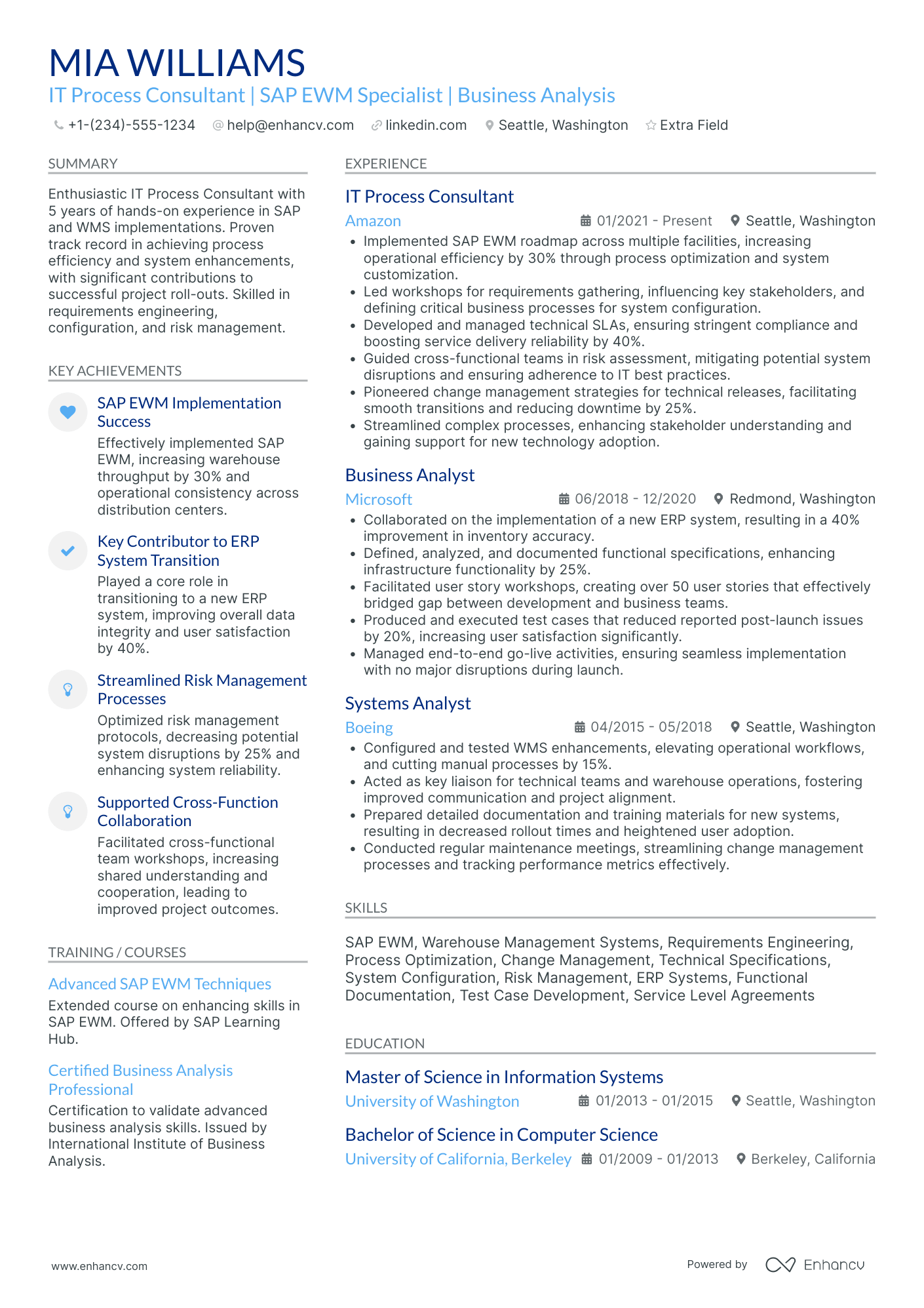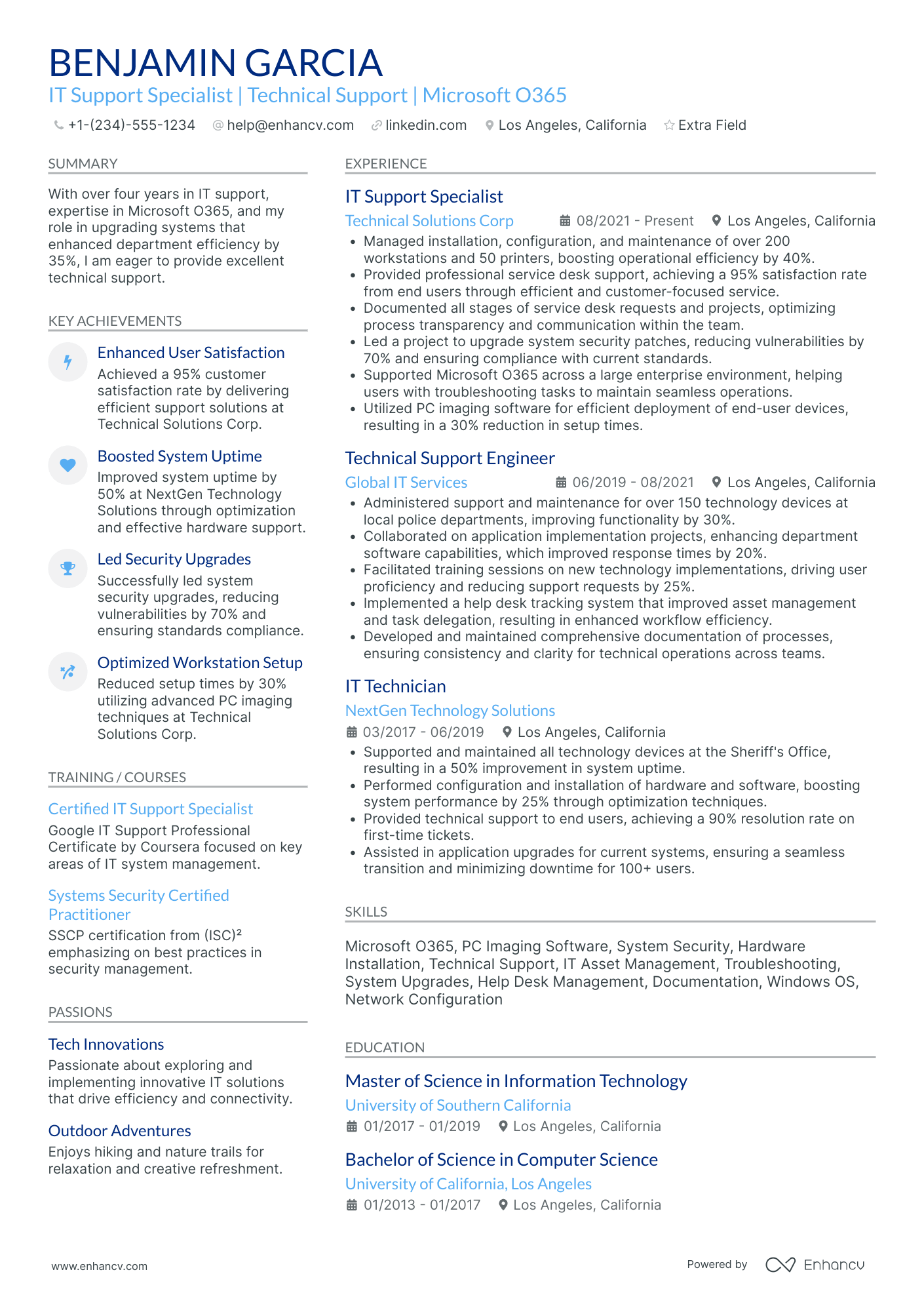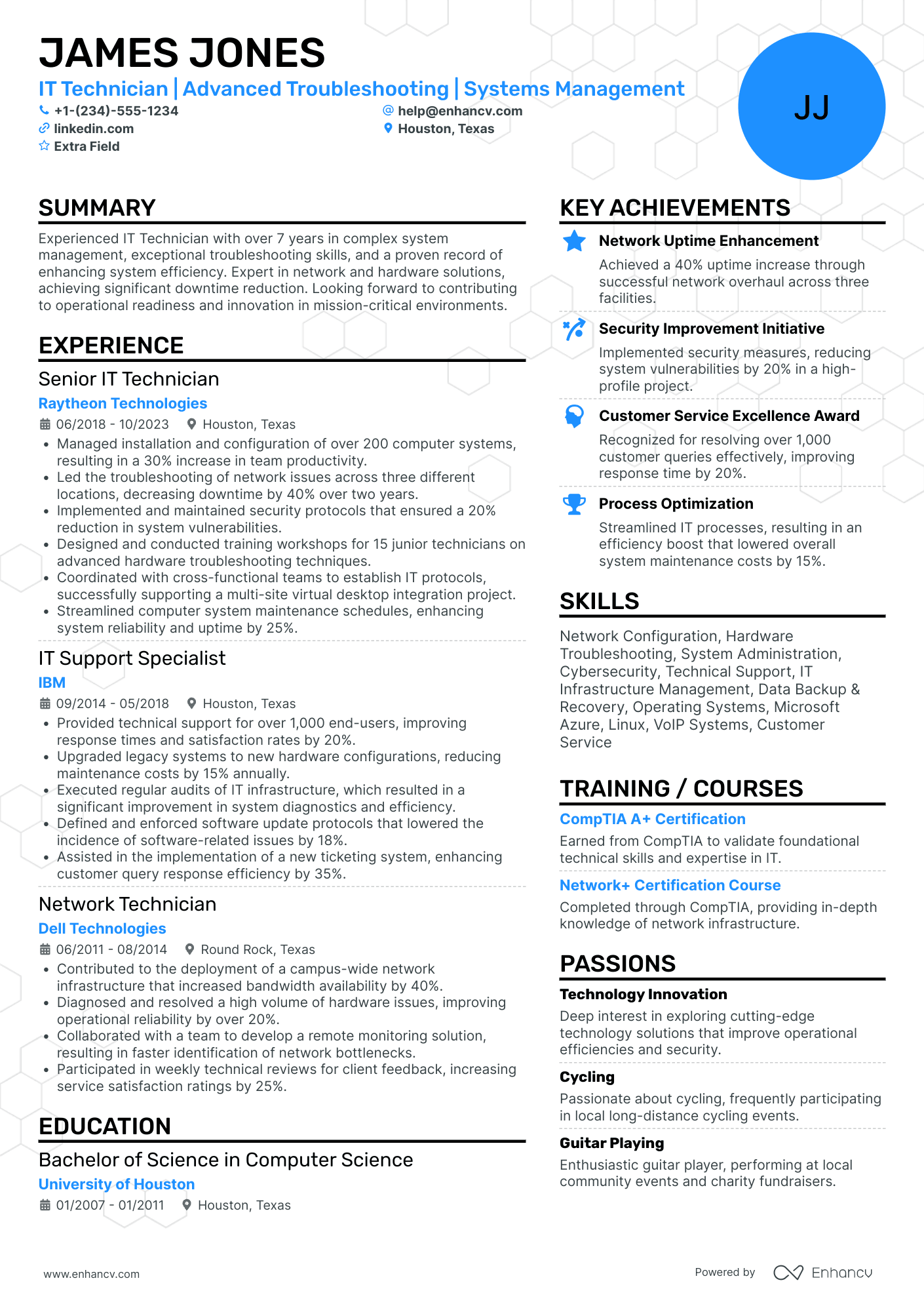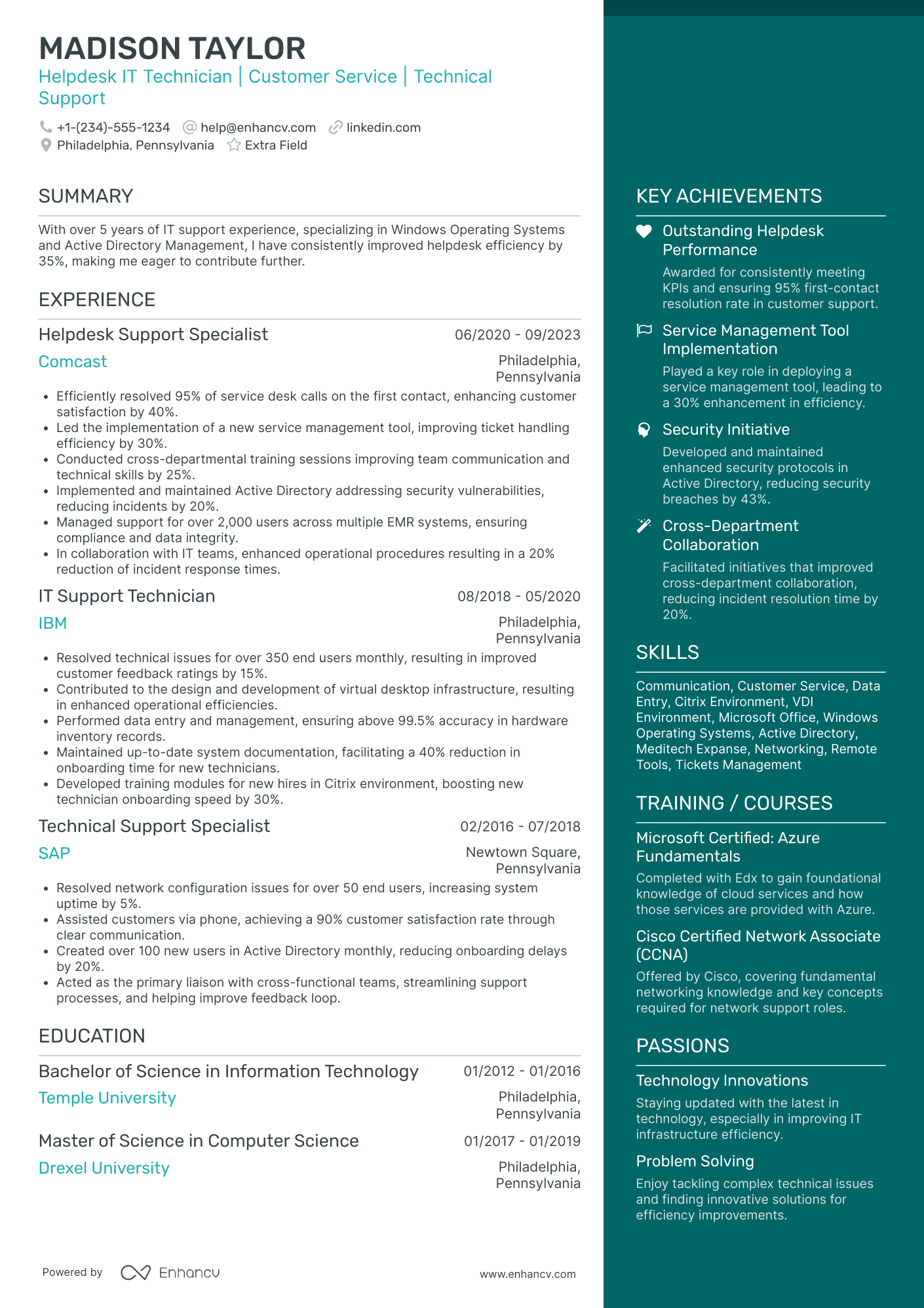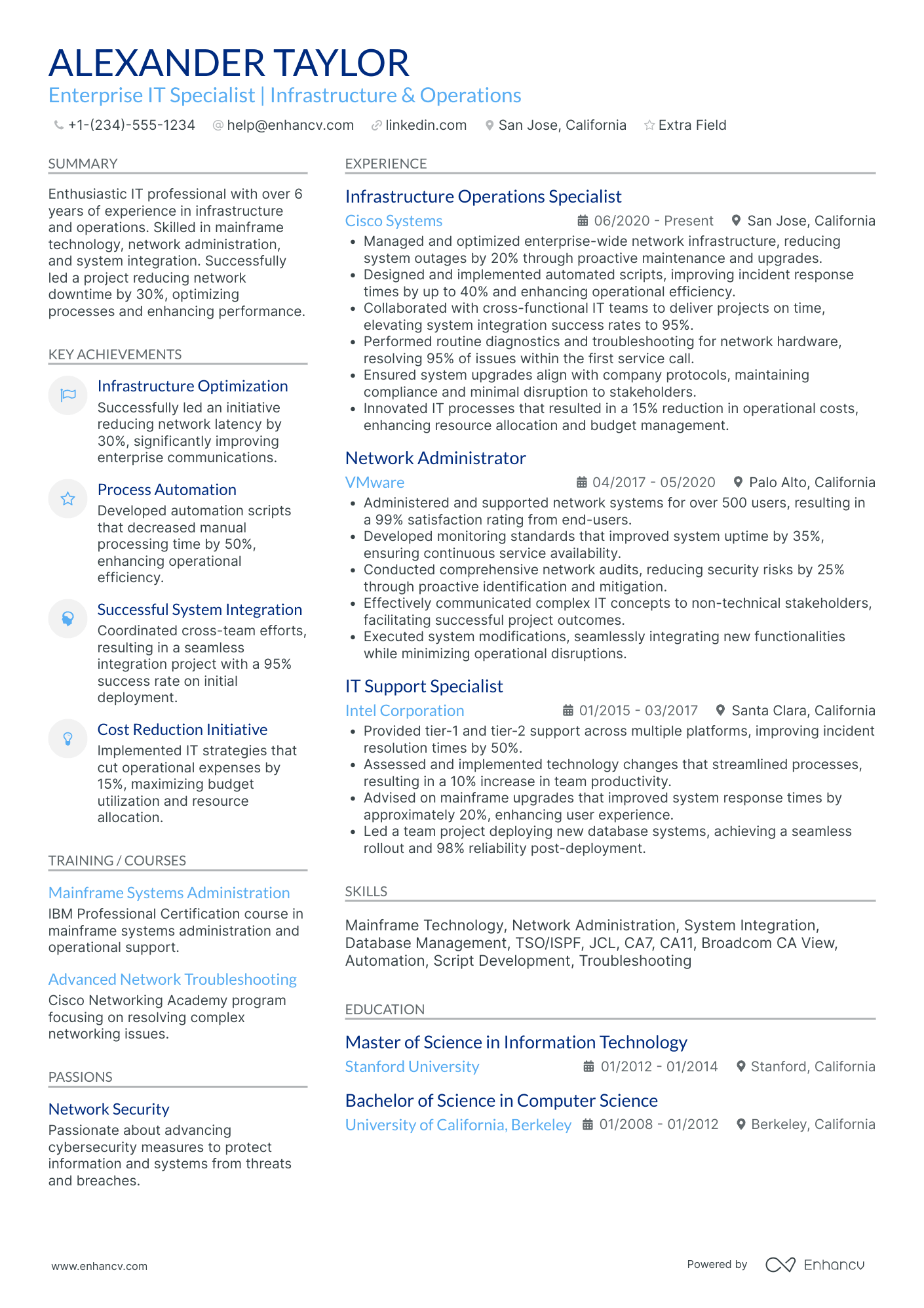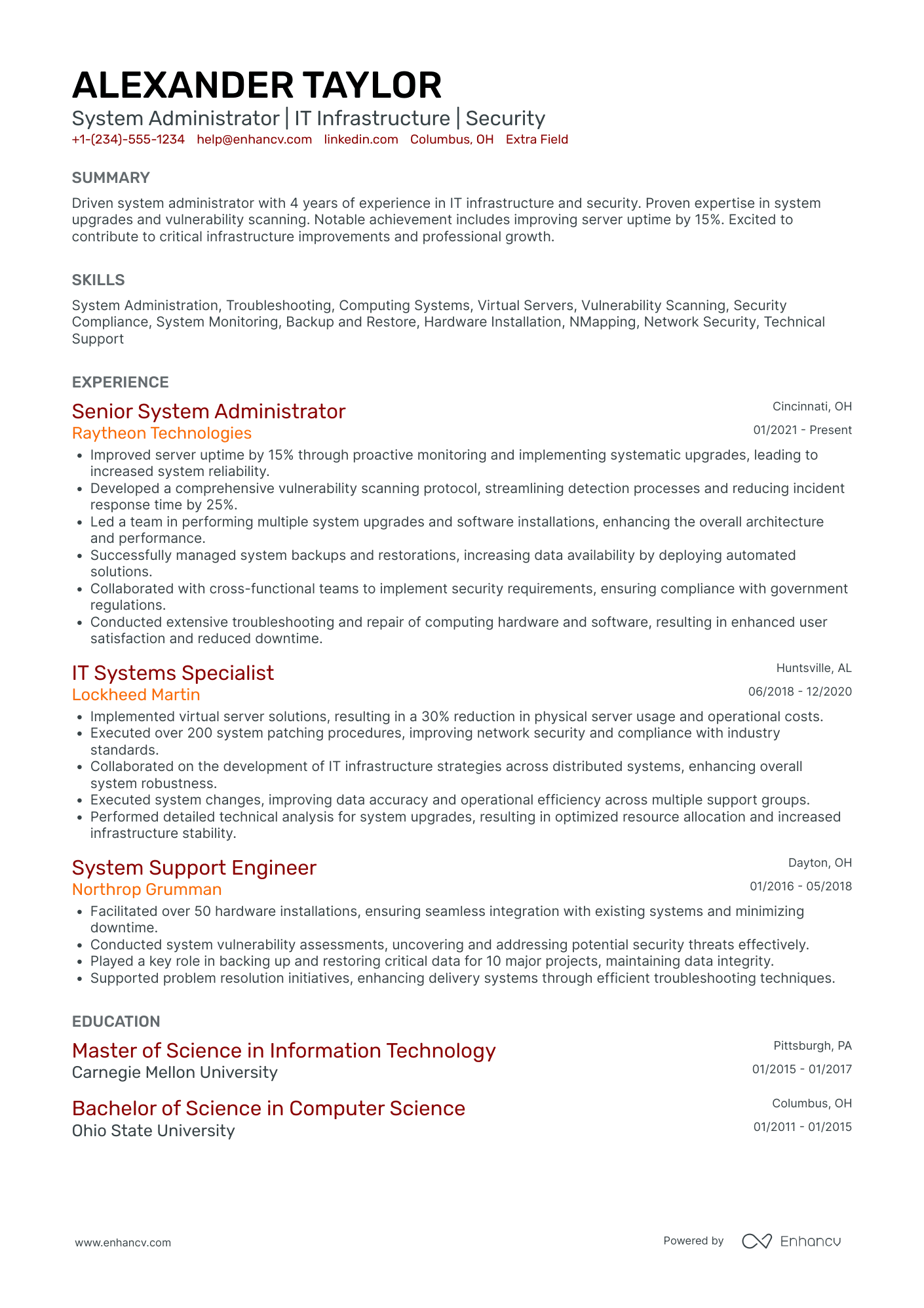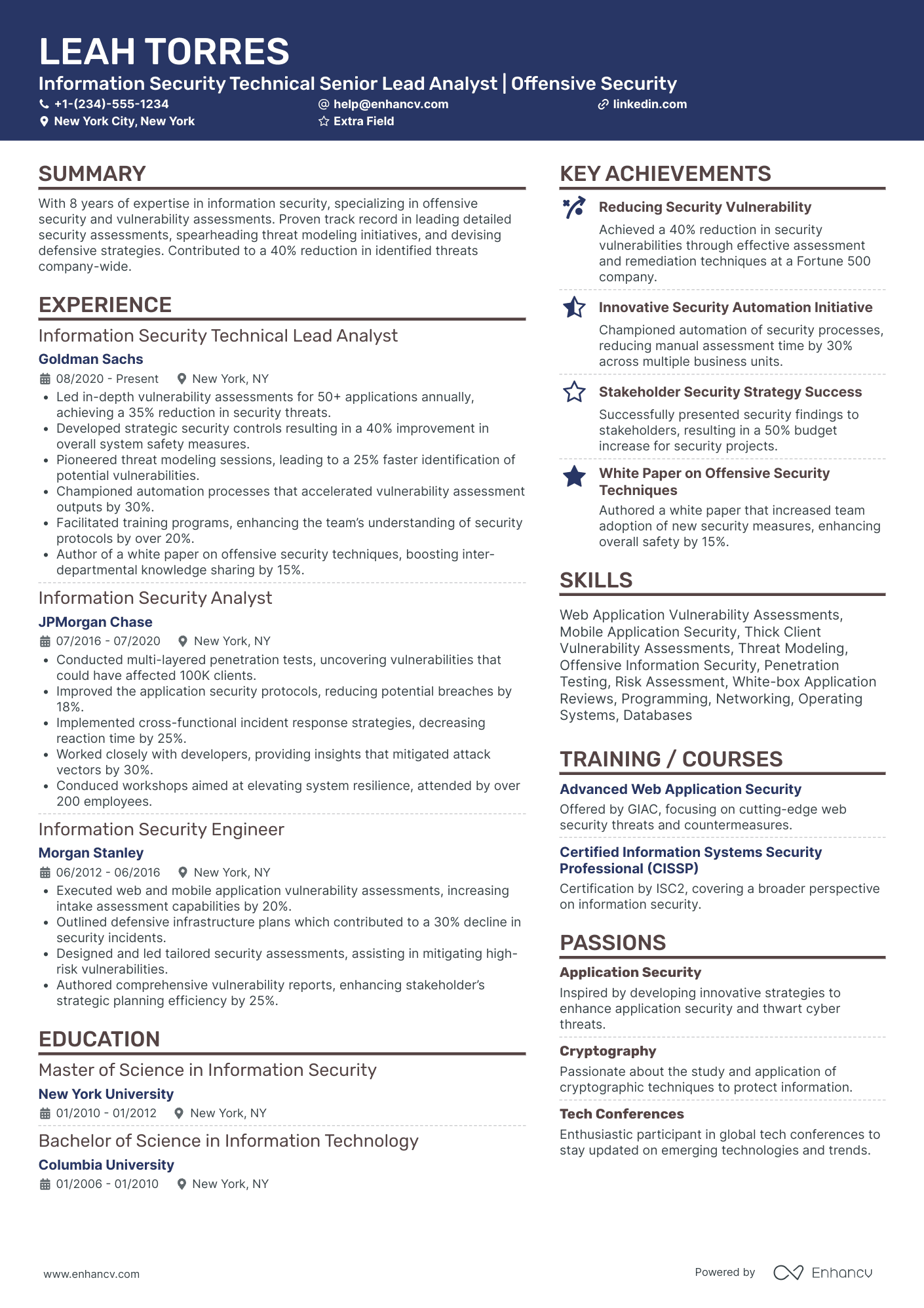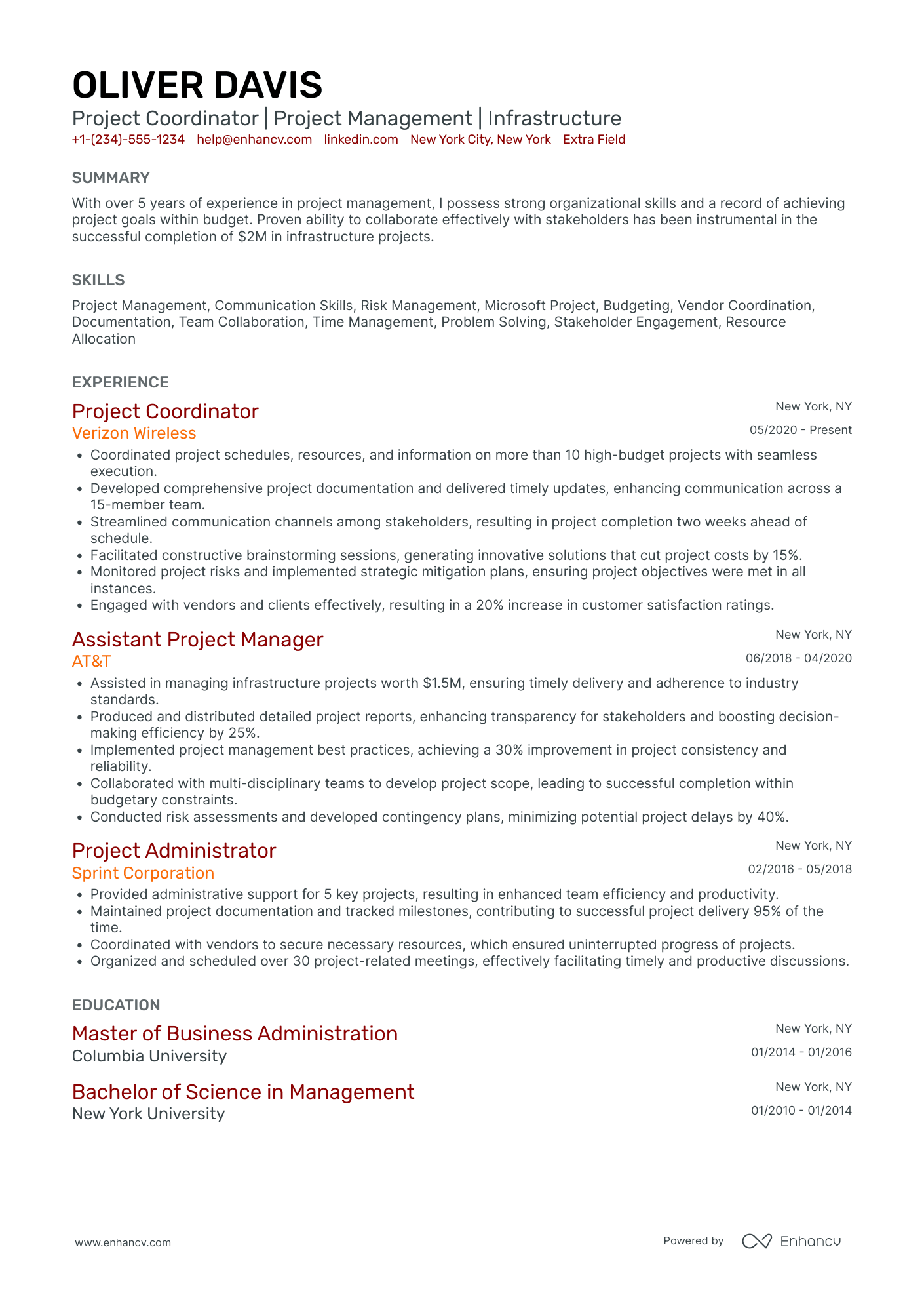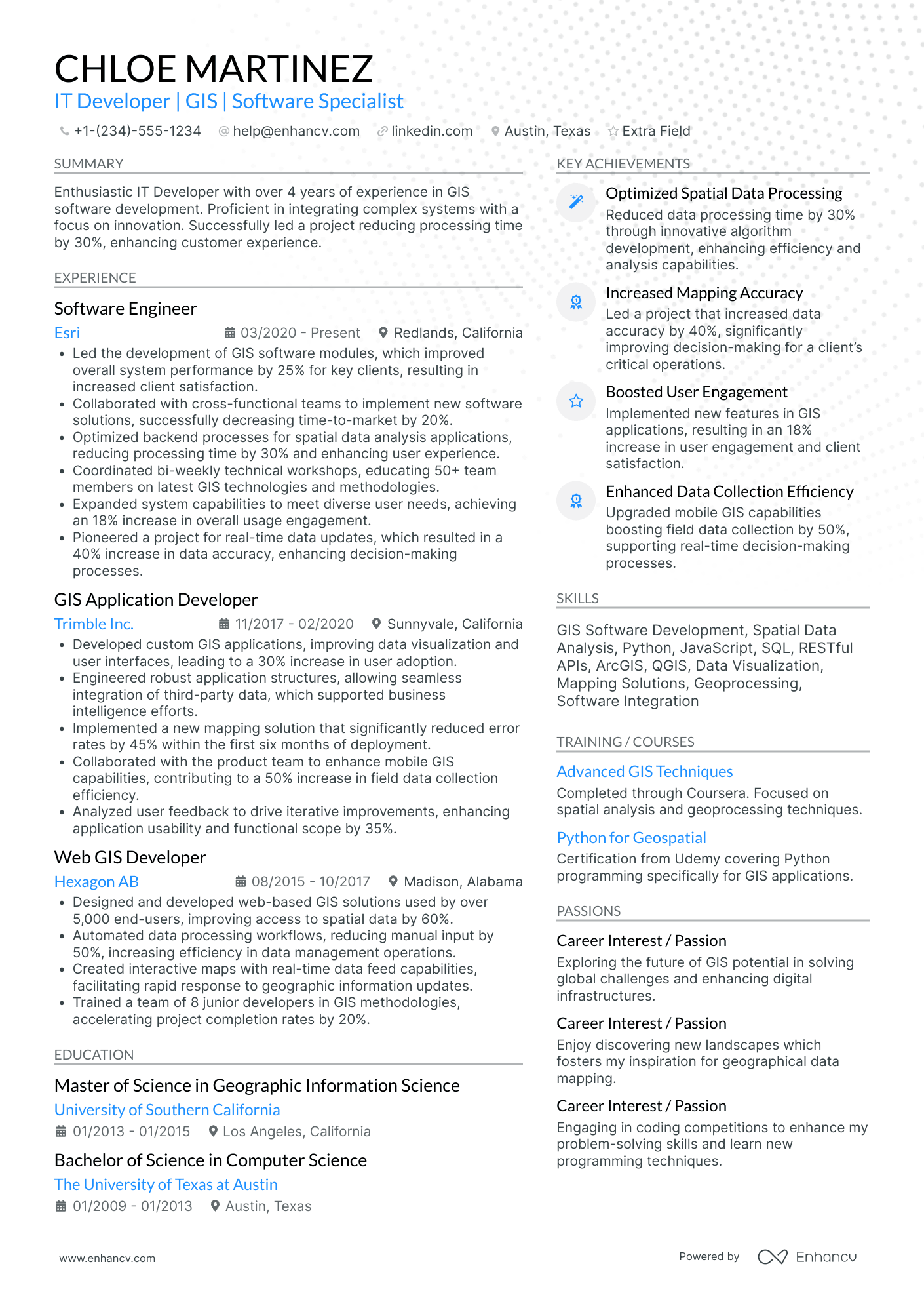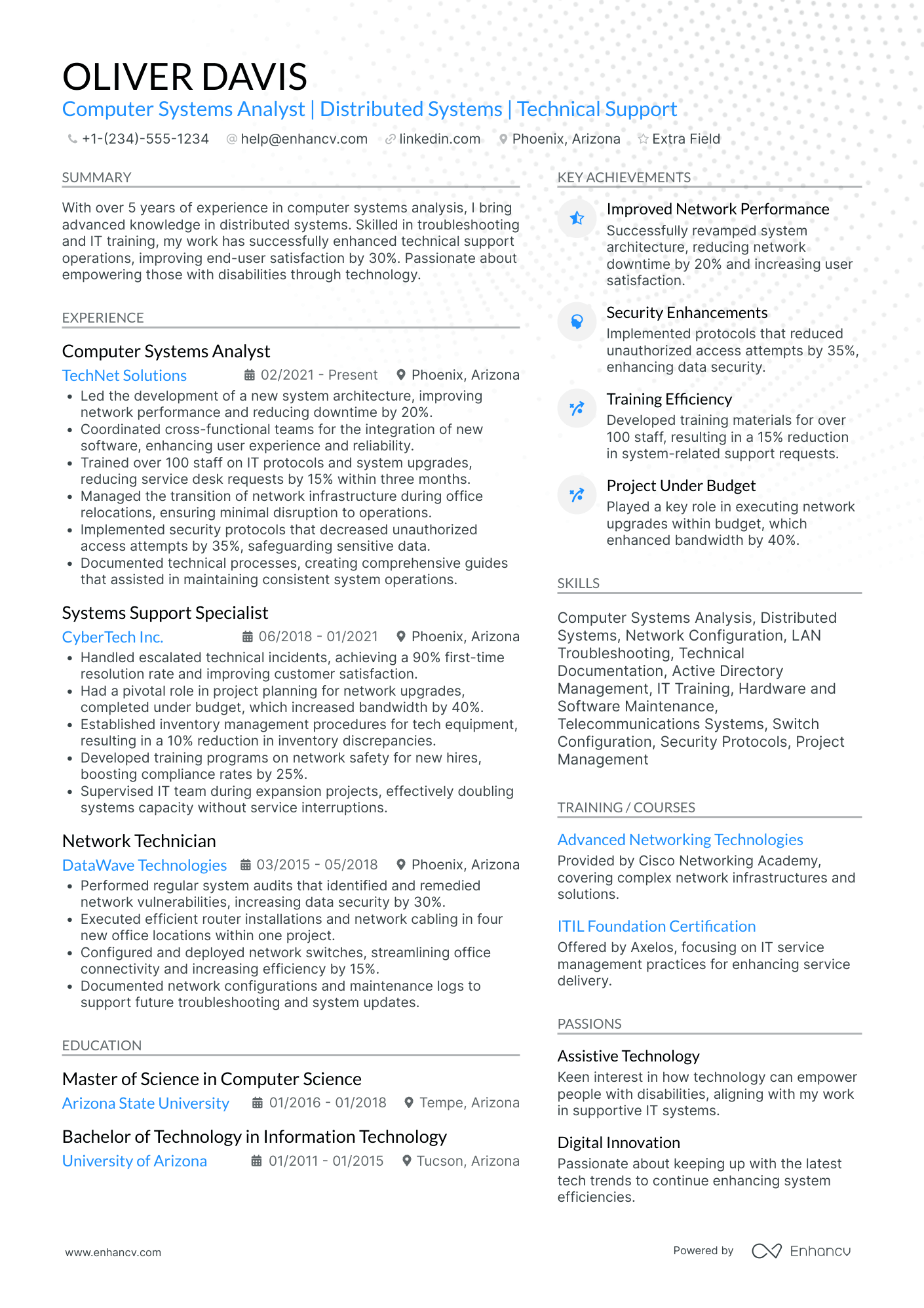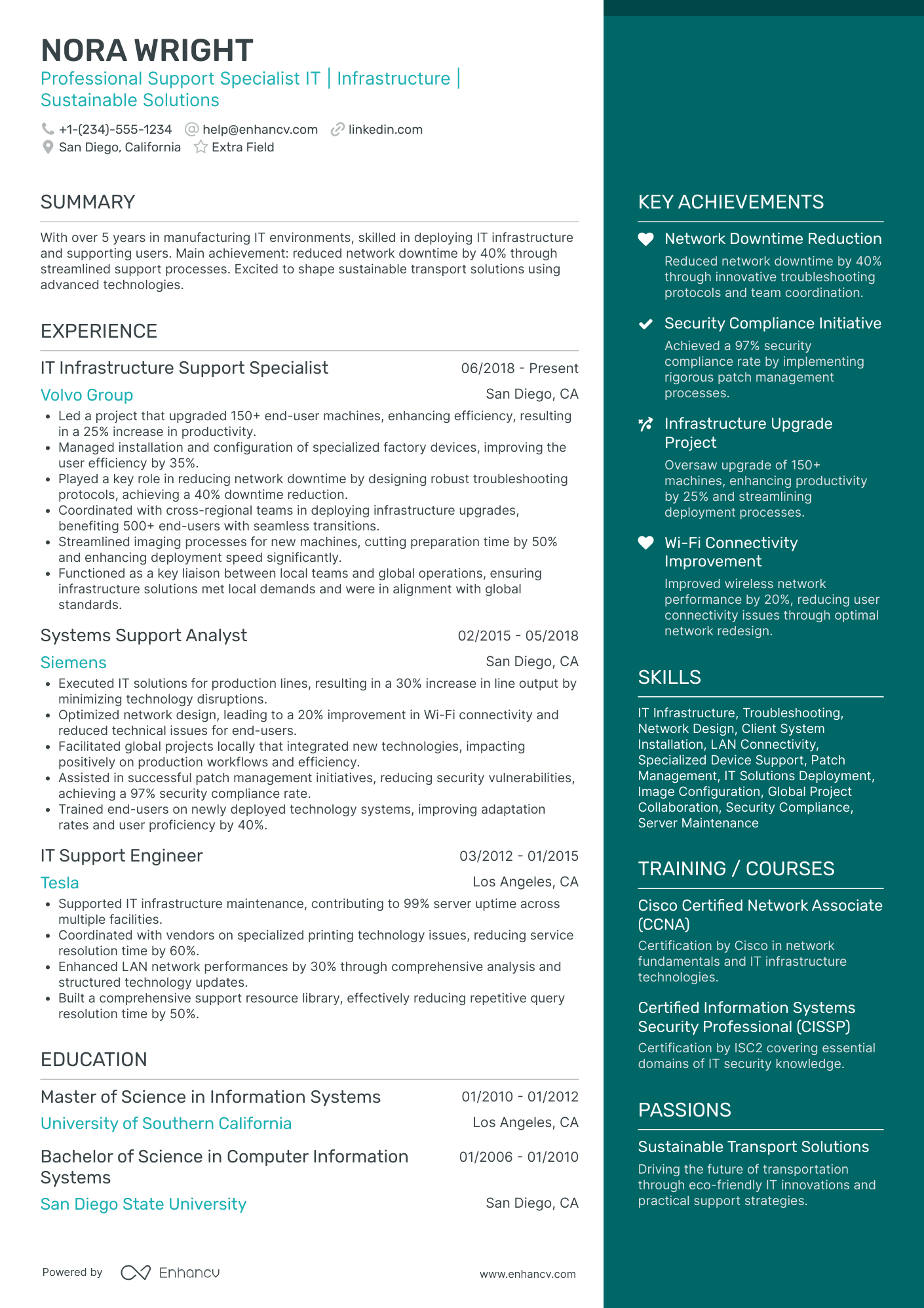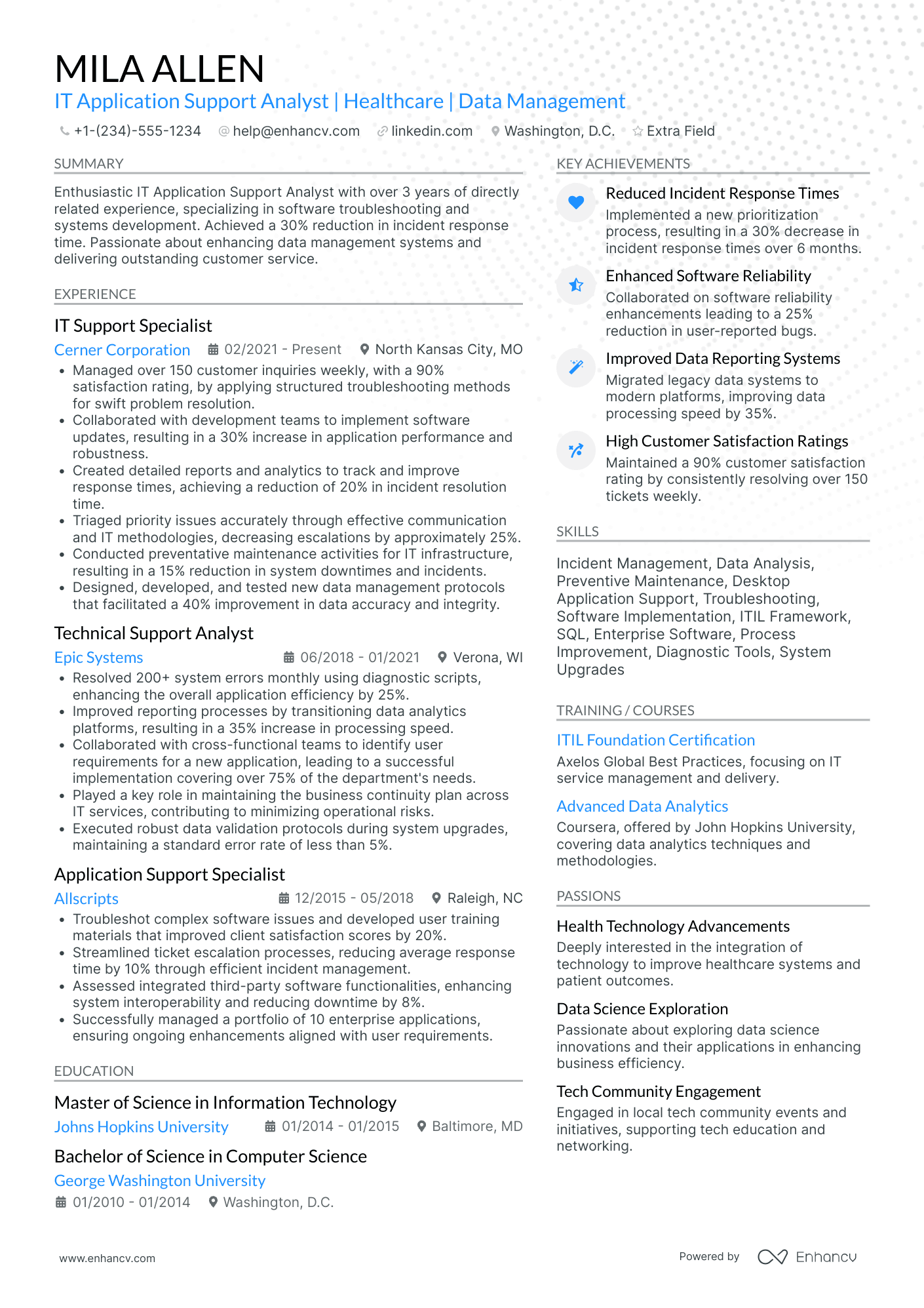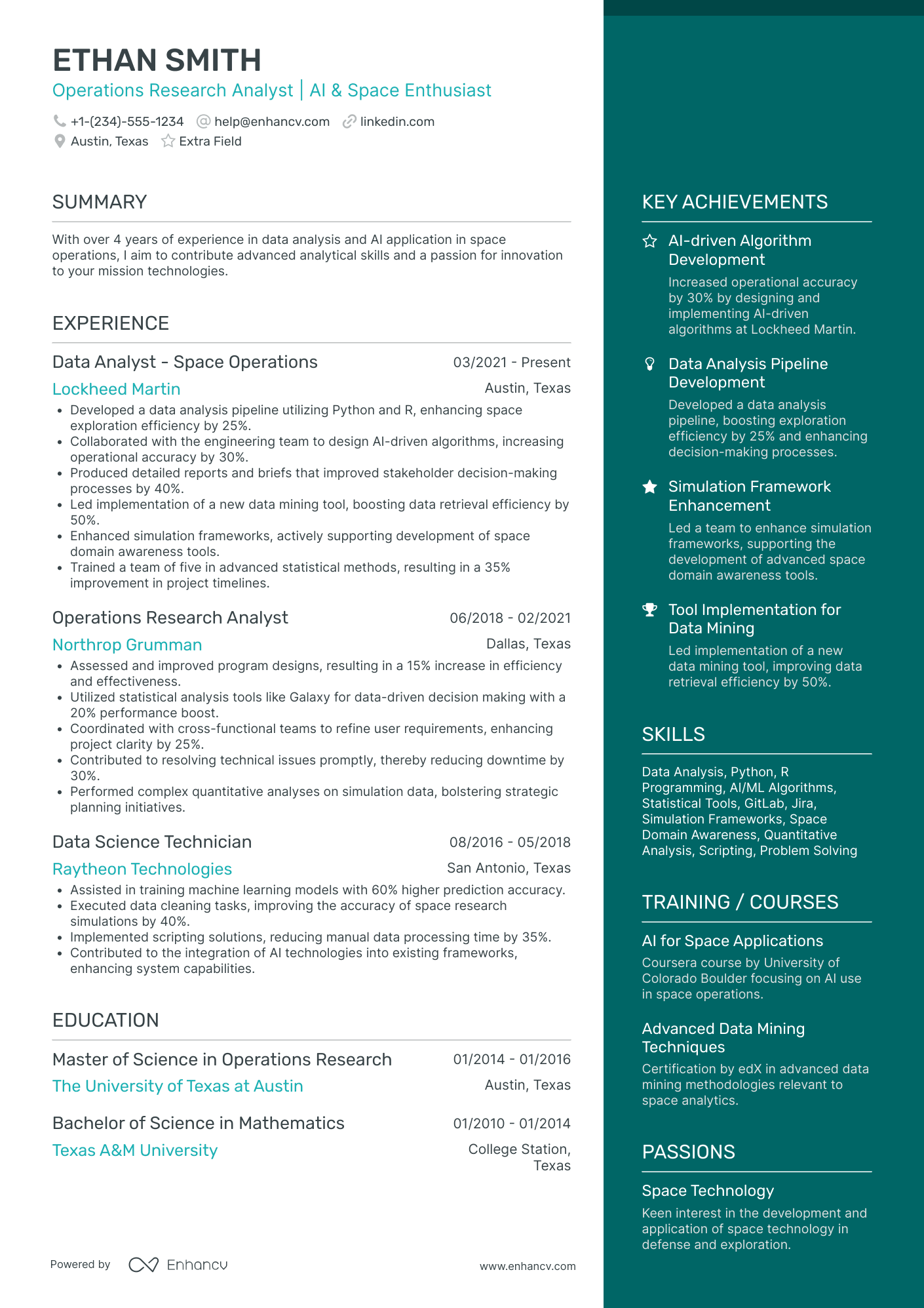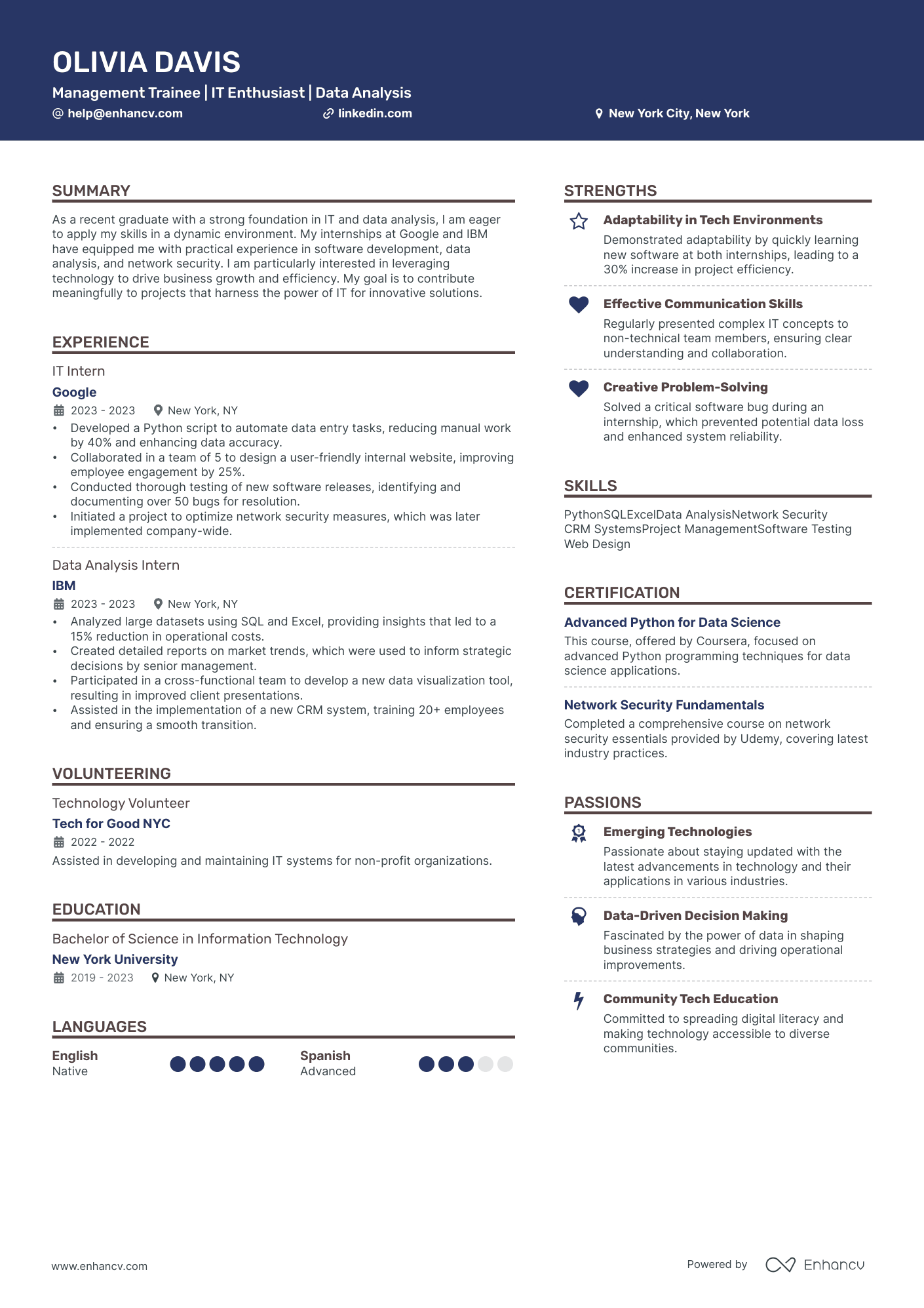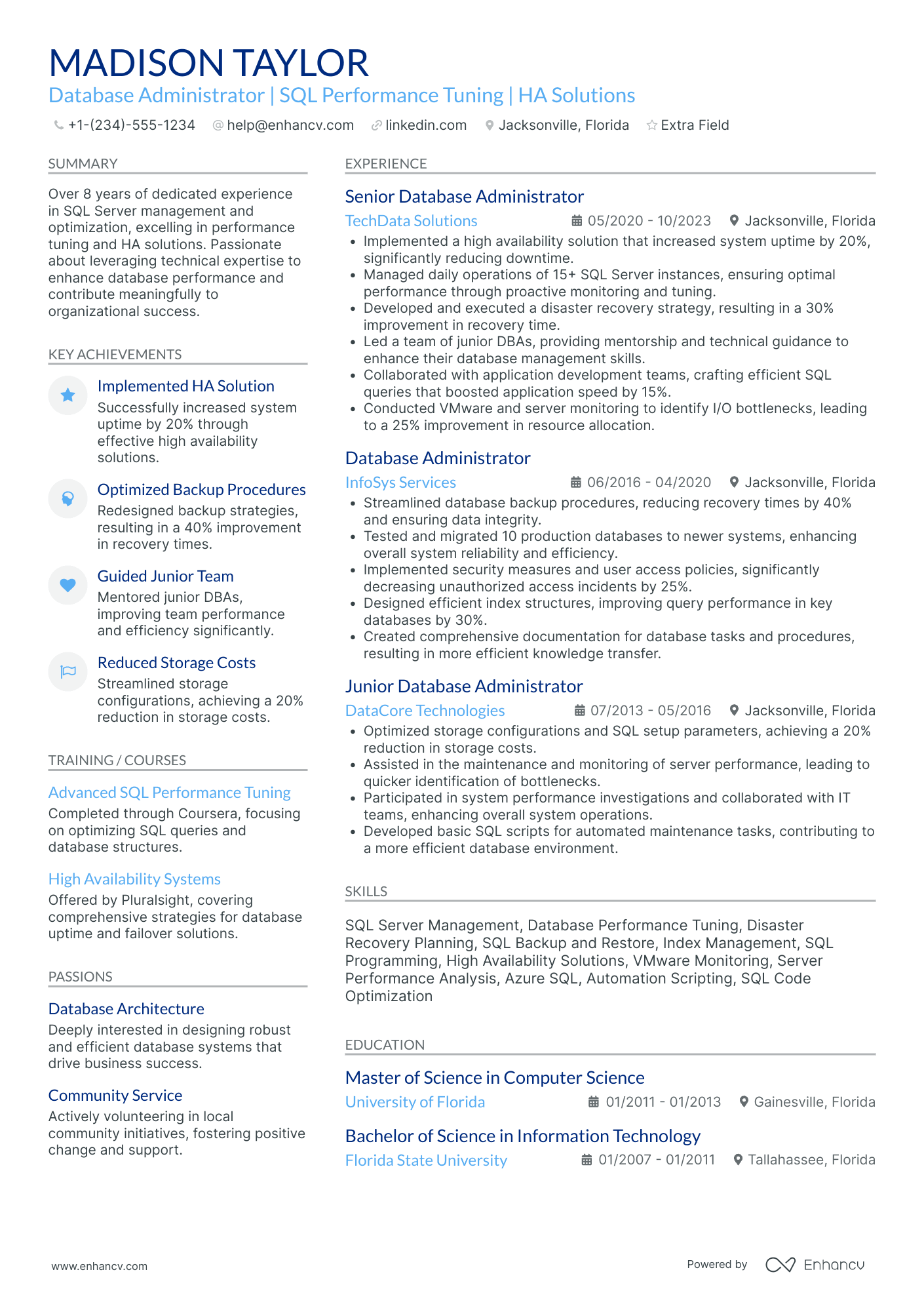IT professionals are increasingly becoming the most sought-after talent in today’s job market across various industries. Even among entry-level applicants, companies are on the lookout for the next superstar to drive their technological advancements forward.
But, there’s a big headache for entry-level IT applicants when highlighting their qualifications! That’s due to the nature of tech jobs, which aren’t as straightforward as traditional roles. Two entry-level IT candidates can occupy the same role in separate companies yet have completely different duties and responsibilities.
On the bright side, a powerful entry-level IT resume that captures your unique strengths and talents can be the solution. All you need to do is understand exactly what’s expected from you in the job description to be able to promote yourself in the best fashion.
This entry-level resume-building guide will teach you:
- How to format and design your entry-level IT resume to make a strong first impression.
- Best strategies to bridge your lack of experience through projects, internships, and self-taught skills.
- Most in-demand soft and core skills for entry-level IT jobs to meet recruiters’ demands.
- Entry-level IT resume templates and examples to get you inspired.
- Unique techniques for leveraging education and certificates to bolster your job search.
Looking for more resume guides for entry-level IT jobs? Check out our top picks:
- Entry-Level Programmer Resume
- Entry-Level Data Scientist Resume
- Entry-Level Software Engineer Resume
- Computer Science Resume
- Entry-Level IT Cover Letter
Entry-level IT resume example
Here's what this applicant does well in their resume:
- Practical IT experience: Mentions internships at Google and IBM, showcasing hands-on experience in software development, data analysis, and network security, which is crucial for the IT field.
- Quantifiable achievements: Provide specific figures, like reducing manual work by 40% and increasing engagement by 25%, demonstrating the impact of their work.
- Relevant certifications: Lists certifications like "Advanced Python for Data Science" and "Network Security Fundamentals," which are pertinent to the IT and data analysis sectors.
- Enthusiasm for IT: Demonstrates a genuine passion for technology and continuous learning, highlighted by their volunteering experience at nonprofit organizations and commitment to spreading digital literacy.
How to format an entry-level IT resume
Crafting an effective entry-level IT resume is about presenting your professional journey in an unambiguous fashion that captivates recruiters right off the bat. Just like how clarity and efficiency are essential in IT, you should think of your resume format as the UI of your job application.
A well-designed UI guides recruiters effortlessly through your resume, making such a potentially dull task effortless and enjoyable. It allows you to highlight your strengths and achievements clearly and concisely, ensuring that your document stands out in a sea of applicants.
When formatting your entry-level IT resume, consider the following elements to make a strong impact:
- Use the reverse chronological format: Start with your most recent degree, certification, or work experience, and then work your way backward.
- Create an attractive header section: At the top of the page, craft a clear header that includes your name and contact information. (If you’d like to add a resume photo, you should be mindful of the norms in the country you're applying to.)
- Emphasize important sections: As an entry-level applicant, it’s key to shift the focus from experience toward other sections such as education, internships, certifications, as well as relevant projects or skills.
- Keep your resume length to one page: If you keep your resume concise and on-point, a single page is more than sufficient to cover all relevant information without overwhelming the recruiter.
Resume font is another important element to consider when building your entry-level IT resume. The right typeface is both professional and easy to read, making your resume more visually appealing. Some fonts we recommend are Rubik, Lato, Montserrat, Raleway, Exo 2, and Volkhov. But of course, you can always use traditional fonts such as Arial and Times New Roman.
Consider the local standards – Canadian resumes, for example, may have a different format.
PRO TIP
When deciding on the format to use for your resume, PDF is often the best choice compared to DOC. PDF documents maintain their design and layout across all devices, ensuring that hiring managers will read them exactly as you intended. This is particularly crucial for entry-level IT resumes, where clarity and professionalism are key.
Lastly, you may have heard the myth that applicant tracking systems (ATS) will automatically reject your resume if it lacks a few keywords. In reality, that's far from the truth because ATS systems still don't have built-in features that autonomously disqualify candidates based solely on the absence of specific keywords. So, what does that mean exactly?
If your rejection rate is high, it's probably due to one of two reasons:
- The position had already been filled before you even sent your application.
- The hiring manager went through all resumes and chose a different applicant.
Now, the goal of using these keywords is more about resonating with the recruiter once your resume reaches their desk. Especially in IT, core skills and industry-specific terms demonstrate your familiarity with the tech field and align your experience with the job requirements, making a strong case for your candidacy.
Is your resume good enough?
Drop your resume here or choose a file. PDF & DOCX only. Max 2MB file size.
The top sections on an entry-level IT resume:
- Header: It allows the recruiter to connect with the candidate easily for discussion or job offers.
- Career objective: Helpful to understand the candidate's goals, and aspirations, and how they align with the company's requirements.
- Skills: For the IT role, this section is essential to list technical skills like coding languages, software, and hardware familiarity.
- Education & certifications: This highlights the candidate's credentials, degree, and any extra courses or certifications specifically in the IT domain.
- Work experience/internships: Shows any hands-on experience with IT roles or projects, which is often a deciding factor for entry-level candidates.
What recruiters want to see on your resume:
- Technical skills: These are vital in IT roles as they form the basis of their work, which includes coding languages, software knowledge, hardware troubleshooting, etc.
- Certifications: Certificates from reputable sources strongly suggest dedication and seriousness toward your profession, giving you an edge over other applicants.
- Problem-solving skills: Problem-solving is a crucial skill as it allows IT job seekers to overcome complex technical issues using logical thinking and creativity.
- Hands-on experience: Even for an entry-level candidate, expertise with real-world projects, internships, or volunteer work can demonstrate your ability to apply theoretical knowledge in practical scenarios.
- Familiarity with latest trends: The field of IT is rapidly evolving, making a proactive learning approach a top priority for hiring companies. That includes familiarity with the latest tech trends (like AI, Machine Learning, etc.).
How to write your entry-level IT resume experience
Typically, the experience section is the part of your resume where you outline your career history and achievements. It’s where you provide recruiters with insight into your practical skills and how you've applied your tech knowledge in real-world scenarios.
But as an entry-level IT candidate, it’s comprehensible if you don’t have extensive experience to showcase in your resume. The good news is: hiring companies understand that and aren’t looking for long years of expertise. However, you still have an opportunity to catch them off guard and get them excited about hiring if you list self-directed learning experiences, temp work, projects, etc.
Here are a few ways you can do that:
- Projects and coursework: Detail any relevant academic projects or coursework that demonstrate your IT skills and knowledge.
- Internships: Even when not directly related to IT, internships can show your ability to work in a professional environment and acquire new skills.
- Volunteer work: Participation in tech-related volunteer work is invaluable to highlight your practical skills and your passion for technology.
- Self-learned skills: Mention any IT skills you've taught yourself through online courses, tutorials, or personal projects.
Examples of entry-level IT resume experience section:
- •Participated in a semester-long project to build a website for a local shop
- •Utilized web development tools and languages to assist with the development of front-end and back-end components.
- •Responsible for the testing and optimization of website features post-launch.
From a quick first glance, it's evident that there are a lot more details you can delve into when describing this project. Of course, this doesn’t mean overloading your description with buzzwords and jargon that could leave the recruiter confused. But it does mean providing a clearer, more engaging narrative.
Also, the example fails to feature any metrics or tangible skills that might catch the hiring manager's attention.
Here are a few quick tips to enhance this entry-level IT experience section:
- Include quantifiable achievements: Whenever possible, use numbers to quantify your accomplishments in the project. For example, "Developed an app that got 1,000+ downloads in the first month."
- Highlight transferable skills: Even if your experience isn't directly related to IT, highlight any transferable skills you may have acquired throughout your journey. These could include problem-solving, teamwork, and adaptability.
- Leverage action verbs: Start each bullet point with a strong action verb, such as “Designed” or "Implemented," to articulate your contributions more effectively.
- •Collaborated with a 4-member team to develop an e-commerce website for a local bookstore, utilizing HTML, CSS, JavaScript, and PHP.
- •Led the backend development by designing and implementing a secure, efficient MySQL database to handle user data and transactions.
- •Conducted comprehensive testing and debugging to ensure optimal site functionality across different browsers and devices, resulting in a 25% increase in user engagement in the first-month post-launch.
How to list your hard skills and soft skills on your resume
Showcasing sought-after skills on your entry-level IT resume is crucial as that illustrates your readiness to adapt, learn, and contribute from day one. Headhunters don’t expect you to master machine learning algorithms or cloud infrastructure optimization. However, they’re looking for someone with the right talents and personality to embark on their learning journey with enthusiasm and dedication.
There are two types of skills you can list on any IT resume: soft skills and core skills.
Soft skills are personal attributes that enable you to interact effectively and harmoniously with others in your day-to-day activities. In the IT sector, interpersonal skills are just as crucial as technical abilities, which include communication, teamwork, and adaptability.
Hard skills refer to the technical competencies and knowledge that are specific to the IT field. These measurable abilities are often acquired through education, certifications, and practical experience. Examples of core skills could include programming languages, network security knowledge, or database management.
Here are three steps to build a captivating skills section for your IT resume:
- Start with the job description in mind: Carefully read the job ad to identify the skills and talents the hiring company is seeking. This ensures your resume is aligned with the specific requirements of the position.
- Write down all your soft and core skills: Create a comprehensive list of all your abilities, and make sure you’re listing all the transferable skills you’ve acquired through other experiences.
- Narrow it down to 5-10 unique and relevant skills: Select the 5-10 most in-demand soft and core skills that best represent your capacities so you can best represent your qualifications.
Best hard skills for your entry-level IT resume
- Python
- Java
- C++
- JavaScript
- SQL
- HTML/CSS
- Linux
- Network Troubleshooting
- Cybersecurity
- Cloud Computing (AWS, Azure)
- Data Analysis
- Machine Learning
- Artificial Intelligence
- Project Management Tools
- Software Testing
- Database Management
- UI/UX Design
- Mobile App Development
- QA Tools
- Troubleshooting Hardware Issues
Best soft skills for your entry-level IT resume
- Communication
- Problem-Solving
- Critical Thinking
- Time Management
- Teamwork
- Adaptability
- Customer Service
- Attention to Detail
- Creativity
- Leadership
- Initiative
- Patience
- Collaboration
- Learning Agility
- Multitasking
- Decision Making
- Empathy
- Analytical Thinking
- Stress Management
- Self-Motivation
How to list your certifications and education on your resume
Education and certifications will provide a powerful boost to your application as an entry-level IT candidate. They not only show your commitment to the profession but also your eagerness to learn and grow. These sections are especially valuable if you’re a fresh graduate with not much work experience or transferable skills to capitalize on.
Before we dive into any further details on how to list your education, let’s first understand what hiring companies expect from you for their entry-level job openings.
The majority of starter jobs in IT require at least a bachelor's degree in related fields such as computer science, information technology, or software engineering. Given the flexibility of the IT sector, candidates with different educational backgrounds can also land a job with relative ease. However, they first have to demonstrate strong technical skills and practical experience through projects or internships.
When listing education on an IT resume, you must include the following information:
- Name of your degree (e.g., Bachelor of Science in Computer Science)
- Name of the institution (e.g., University of XYZ)
- Graduation date (or expected graduation date if you're currently studying)
- Major and minor (if applicable)
- Relevant coursework, projects, or academic achievements (optional)
Certifications serve as an objective measure of your technical abilities and potential. They’re an excellent way to prove your keen interest in the latest advancements and best practices in your field. More importantly, they signal to employers your willingness to learn, giving you an edge over any other applicant lacking such credentials.
Best certifications for your entry-level IT resume
How to write your entry-level IT resume summary or objective
A resume summary is a personal statement outlining your professional expertise and career skills. It’s like an executive summary of a project report, designed to give a quick overview of your biggest achievements and what you can bring to the table.
A resume objective, on the other hand, focuses more on your career goals and future aspirations. Instead of highlighting measurable accomplishments, the objective section helps you articulate your potential and eagerness to contribute to the company's success.
As an entry-level applicant, your best bet is to capitalize on your future potential and make realistic promises about what you can help the company achieve. You also want to express your enthusiasm for the IT field and showcase your commitment to learning, which can be your strongest selling point since you lack experience.
Therefore, it’s best to create a resume objective instead of a resume summary.
But how can you make this section so captivating that it can get you shortlisted for an interview?
- Match your resume objective to the job offer: Your objective should fit the specific IT role you're applying for, addressing its needs and requirements.
- Highlight soft and transferable skills: Even if you're new to the field, you likely have relevant coursework or soft skills that you can put to good use. Look for any transferable technical skills that you possess, such as analytical reasoning or attention to detail.
- Highlight your passion for IT: Showing enthusiasm for technology and how you stay updated with the latest trends will certainly make your application more compelling.
- Clarify your career goals: Be sure to outline how you see this role fitting into your career path. This proves to recruiters that you have ambition and that you are thinking about how you can grow within their company.
Examples of entry-level IT resume objective sections:
Even if this is your first time building a resume, you can easily tell that this objective doesn’t do a good job of persuading recruiters. Not only is it too focused on the candidate’s wants, but it also lacks specificity when it comes to skills and talents. Even worse, it fails to mention any relevant qualifications or areas of interest in IT.
Let’s apply the tricks we learned above, and see how this example improves:
This new objective section is targeted specifically to the job offer, which makes it more appealing and attractive to the hiring company. It clearly states the applicant’s educational background and area of expertise, emphasizing how they will contribute to the company’s growth. It also demonstrates a genuine willingness to learn and grow, aligning the candidate's goals with the company's objectives.
Optimize your resume summary and objective for ATS
Drop your resume here or choose a file.
PDF & DOCX only. Max 2MB file size.
Additional sections for an entry-level IT resume
As already mentioned, a one-page resume is sufficient for an entry-level IT applicant. However, you do need to make your application interesting through additional sections to truly capture your worth and provide a comprehensive view of your capabilities.
If you think about it: your fiercest competitors also have a bachelor’s degree, possess relevant certifications, and can boast similar technical skills. So, to truly stand out, your resume outline has to showcase qualities beyond just technical skills and education. Your own entry-level IT resume must include instances from both your professional and personal life that can make recruiters go “Wow!”.
Here are the best additional sections to feature on an entry-level IT resume:
- IT Projects: Detail any relevant projects you've worked on, whether as part of your coursework, personal initiatives, or through internships.
- Strengths: Highlight personal strengths that make you a good fit for IT roles, such as proficiency in coding languages, analytical thinking, or problem-solving skills.
- Hackathons and Competitions: Participation in hackathons, coding challenges, or technology competitions will show your competitive spirit and ability to work under pressure.
- Online Courses and Workshops: Completing relevant online courses or workshops, especially those with a practical component or certification, shows your interest in developing your technical knowledge.
- Volunteering: Volunteer work, especially when related to technology, can demonstrate passion and your willingness to engage with the community.
- Languages: Multilingual abilities are a great asset when applying for global companies, as they can highlight your ability to communicate in diverse environments.
- Passions: Share any passions you have related to technology, which can range from a keen interest in cybersecurity trends to personal projects like building your own PC or developing an app.
Key takeaways
Crafting a career-launching entry-level IT resume should no longer be a mystery. Here are a few key ideas to get you started:
- Your resume format and design are vital for making a strong first impression. Always ensure they are tailored to be both visually appealing and professionally relevant.
- Despite your lack of experience, you can showcase technical prowess by detailing relevant projects, coursework, and personal initiatives. This demonstrates your ability to apply theoretical knowledge in practical scenarios.
- Choose the most persuasive soft skills and core talents and highlight them in a separate section to draw attention to your best capabilities.
- Hiring companies consider theoretical knowledge a gold mine when hiring for entry-level jobs. Thus, highlighting a degree with relevant certificates could be the key to elevating your entry-level IT resume.
- Create a personalized resume objective instead of a summary to inform recruiters about your career goals and showcase your passion and enthusiasm for the tech field.
- Additional sections such as “Projects” and “Workshops” will help provide a fuller picture of your skills and interests, making you a more attractive candidate to recruiters.
Entry-Level IT resume examples
By Role
